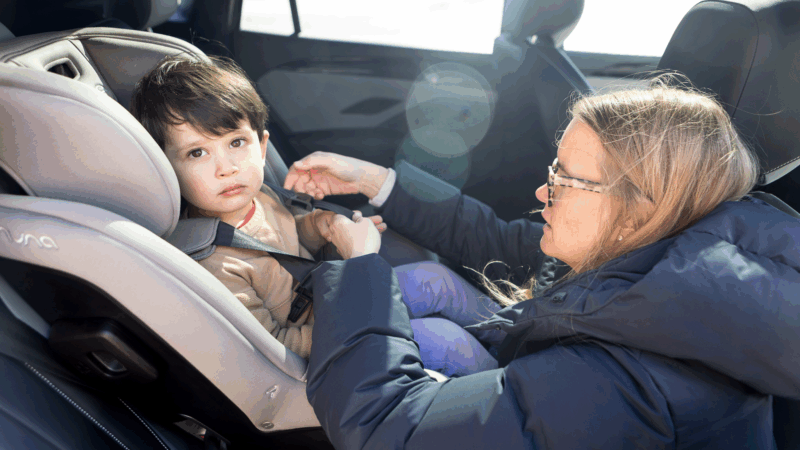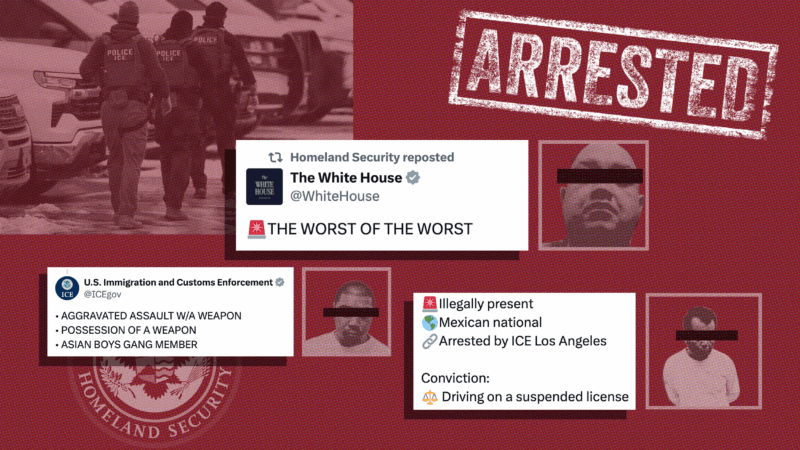Some Alabama Voters Anxious Ahead of the Midterms
Hundreds of thousands of voters have been dropped from Alabama’s active voter rolls. And in recent years, dozens of polling places have closed. In some cases those closings have disproportionately affected African Americans. As a result, many voters here are anxious about Tuesday’s elections.
Sylvia McClain, 66, has voted at the Hilldale Church in Pinson for at least 10 years. But a few elections ago, she showed up at her polling place and no one was there.
“There weren’t any signs or anything there and I knocked on the door and nobody answered. I didn’t know what to do,” she says.
Then the run around began. McClain left the Hilldale Church, went home to regroup and decided to go to the Rock School Center, another polling place near her house. That’s where she found out her voting station changed to Jefferson State Community College. “I went over to Jeff State and then I was told I had been eliminated from the roll because of nonvoting,” McClain says.
She was baffled. She’d only missed one election in recent years. But after a lengthy conversation with a poll worker, she filled out a couple forms, and was reinstated on site. McClain’s situation isn’t unique. Just last week, election officials in Madison County held a press conference to call attention to voter suppression after some students at the county’s two mostly-black colleges discovered they were placed on the inactive voter rolls.
Peter Joffrion, a Democratic candidate for Alabama’s 5th congressional district and former Huntsville city attorney, called for the students to be reinstated to the active voter list.
Those kids you’re disenfranchising live in my district, @JohnHMerrill. I know @RepMoBrooks won’t stand up for them, but I will. Change their voter status from INACTIVE to ACTIVE. You’re conflating the quadrennial process with a process you’ve created, which is not lawful. #AL05 pic.twitter.com/BHKcW85Fvp
— Peter Joffrion for Congress (@peter_joffrion) November 1, 2018
People are knocked off the rolls if a postcard from the secretary of state’s office containing voter info bounces back to the post office twice. Groups like the ACLU and the NAACP have argued these practices disproportionately affect marginalized groups. A 2013 U.S. Supreme Court decision invalidated the part of the Voting Rights Act that required jurisdictions to get federal clearance before passing any new voting laws. Since then, the state passed strict voting regulations and many polling places have closed.
Jenny Carroll heads the Alabama state advisory committee to the U.S. Commission on Civil Rights. She says, “they tend to be in the Black Belt of Alabama. They tend to be minorities and they tend to be among the voting populations that traditionally were disenfranchised under those hard-voting suppression regulations that were put in place in Alabama.”
Part of Carroll’s job is to report to Congress problems with voting access across the state. What she’s found, she says, is that voter intimidation has taken more subtle forms, particularly with Alabama’s recent series of voting laws. “And among the most serious regulation that Alabama passed was the voter I.D. requirement which requires voters to have a state issued I.D. and the state articulated which I.D. would be acceptable,” she says. Acceptable forms of identification include a driver’s license or a valid U.S. passport. The state can also provide registered voters a free photo voter I.D.
Secretary of State John Merrill says he’s expanded access to voting, noting that Alabama has a record 3.4 million voters. He also says new software will expedite the voting process. “One of the things that we’ve done to make it easier for our people to participate is to introduce the electronic poll books which reduces the wait time some 60 to 75 percent,” he says.
These electronic poll books replace the paper lists election officials use to look up a voter’s information. But how accurate is that information? Last week, Merrill announced more than 600,000 voters have been purged from the rolls since he’s been in office. He says those are people who have either died, moved to another state or are convicted felons.
But many people, like the Pinson voter McClain, have said they were wrongly moved to the inactive rolls. McClain says she’s looking forward to voting in this election, but she worries she’ll be hit with the double whammy of a closed polling place and having to prove her eligibility yet again. “I’m waiting until November 6th and I am still on the roll, and I’ll get to vote,” McClain says.
Carroll, who heads the committee documenting problems with voter access, says not everyone has the time or the patience to be as persistent as McClain was. The secretary of state encourages people to check their registration status online at myinfo.alabamavotes.gov before heading to the polls. Voting rights advocates say it’s one of many hurdles that make voting tougher than it should be.
This guide from our partners at Birmingham Watch helps steer voters in the right direction should they encounter issues at the polls.
Parents, are you sure your kid’s car seat is installed right? Here’s how to know
In this visual guide, certified car seat experts walk through common installation mistakes and how to fix them. Learn what a secure car seat base and a tightly fastened tether look like and more.
Trump announces ‘major combat operations’ in Iran
Israel and the U.S. have launched strikes against Iran, with explosions reported in Tehran and air raid sirens sounding across Israel.
Trump says he is ‘not happy’ with the Iran nuclear talks but indicates he’ll give them more time
U.S. President Donald Trump said Friday he's "not happy" with the latest talks over Iran's nuclear program but indicated he would give negotiators more time to reach a deal to avert another war in the Middle East.
Bill Clinton says he ‘did nothing wrong’ with Epstein as he faced grilling over their relationship
Former President Bill Clinton told members of Congress on Friday that he "did nothing wrong" in his relationship with Jeffrey Epstein and saw no signs of Epstein's sexual abuse as he faced hours of grilling from lawmakers over his connections to the disgraced financier from more than two decades ago.
How the federal government is painting immigrants as criminals on social media
Experts say this kind of media campaign is unprecedented and paints a distorted picture of immigrants and crime
Pentagon puts Scouts ‘on notice’ over DEI and girl-centered policies
After threatening to sever ties with the organization formerly known as the Boy Scouts, Defense Secretary Hegseth announced a 6-month reprieve







